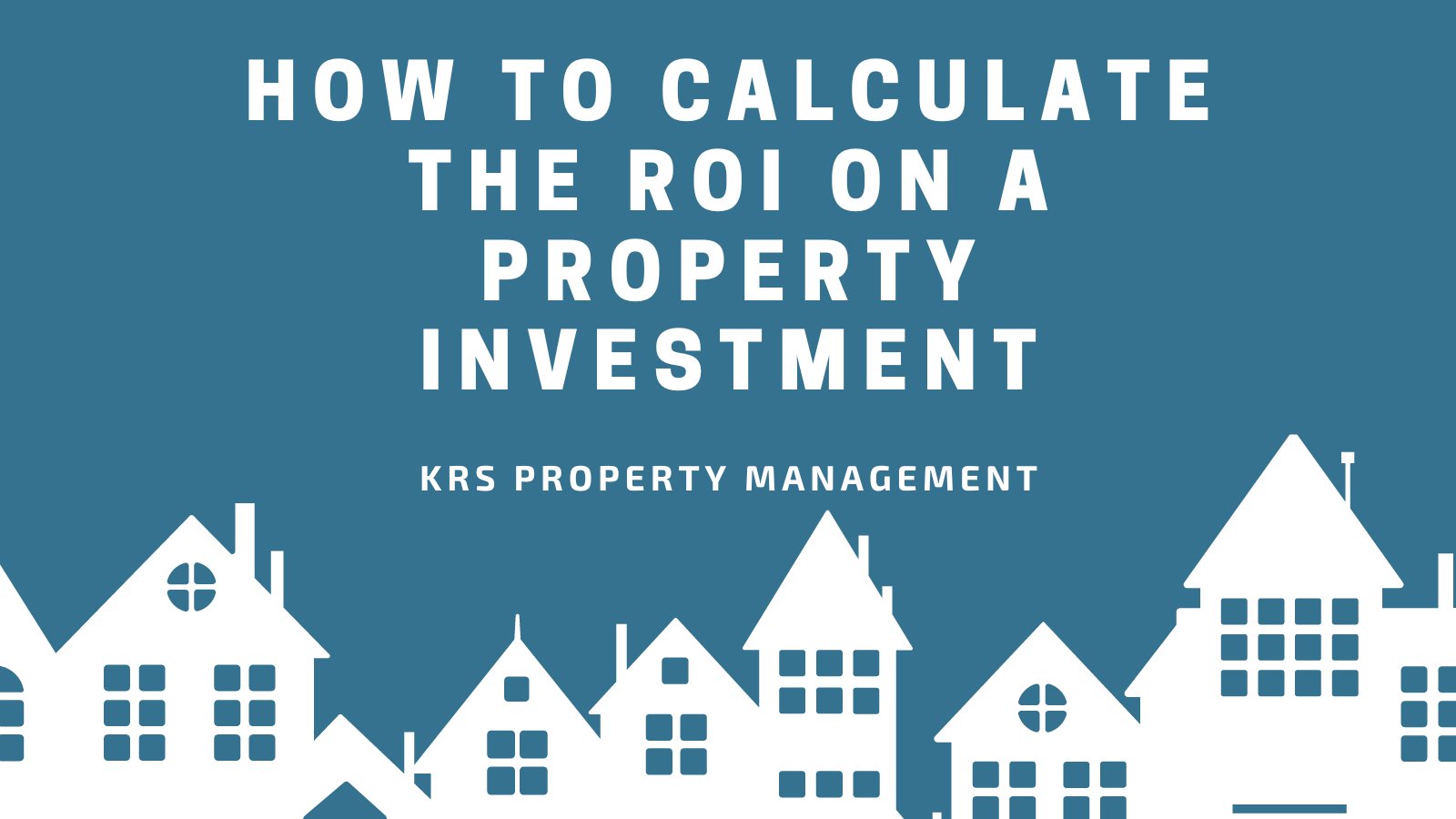
Are you certain your rental property investment is generating the returns you anticipated? As a landlord in Richmond, understanding how to accurately calculate the return on investment (ROI) is crucial to ensuring investors rental property portfolio is thriving.
Whether you're managing single-family homes or a diverse range of units, having a clear grasp on ROI allows investors to assess your property's financial performance and make informed decisions about future investments.
In this guide, we'll break down the steps needed to calculate ROI so investors can confidently evaluate the profitability of your properties and continue to build a successful, sustainable real estate portfolio.
Step #01: Determine Your Total Investment Costs
Before you can calculate your return on investment (ROI), investors must have a comprehensive understanding of your total investment costs. These include all expenses associated with acquiring, improving, and maintaining the real estate investment property. Here's a breakdown of key payments to consider:
Purchase Price: The amount you paid for the rental property itself.
Closing Costs: Fees paid at the close of a real estate investors transaction, including loan origination fees, attorney fees, title insurance, and more.
Renovation and Repair Costs: Any money spent on improving and preparing the property for rental.
Ongoing Expenses: Property management fees, maintenance payments, taxes, insurance, utilities, and more.
Adding up all these expenses will give investors your total investment cost. For example, if you bought a rental property for $200,000, spent $15,000 on renovations, and incurred $10,000 in closing costs, your total investment would be $225,000. This figure serves as the baseline for calculating ROI.

Step #02: Calculate Your Annual Rental Income
Once you've established your total investment, the next step is to calculate the annual income your real estate investment property generates. This figure is crucial in determining the profitability of your investment.
Start by adding up the monthly rent payments for each unit or the entire rental property. If you have multiple units, calculate the annual rent for each and then sum them up.
For example, if investors rent a real estate investment property for $2,000 per month, your annual rental income would be:
Annual Rental Income = Monthly Rent x 12 Annual Rental Income = $2,000 x 12 = $24,000
However, don’t forget to factor in potential vacancies or rental gaps. If your Richmond property is vacant for two months out of the year, you would subtract the lost income for those months. This adjustment ensures a more realistic reflection of your actual income.
Step #03: Subtract Operating Expenses From Income
Now that you have a figure for your annual rental income, it’s time to calculate your net operating income (NOI). The NOI is calculated by subtracting all operating expenses from your annual rental income.
These expenses are ongoing costs that arise from maintaining the rental property and keeping it operational. Common operating expenses include:
Property Taxes: Annual taxes on the rental property.
Insurance: Property insurance to protect against various risks.
Maintenance and Repairs: Routine upkeep, emergency repairs, and regular maintenance.
Utilities: If you cover utilities, factor in the amount needed to pay for water, electricity, gas, etc.
Property Management Fees: If you employ a property management company, include their fees.

The formula for NOI is:
Net Operating Income = Annual Rental Income - Operating Expenses
For instance, if your annual rental income is $24,000 and your total operating expenses amount to $8,000, your NOI would be:
NOI = $24,000 - $8,000 = $16,000
This NOI figure is essential for determining your ROI and understanding how much your profit your property generates after all necessary expenses are covered.
Step #04: Calculate Your ROI Percentage
Once you’ve calculated your NOI, you’re ready to determine the Return on Investment (ROI) percentage. This step is where you measure how profitable your property is compared to the total amount of money you've invested.
The basic formula for ROI is:
ROI = (Net Operating Income / Total Investment Costs) x 100
Using the example from Step #03, if your NOI is $16,000 and your total investment is $225,000, the calculation would look like this:
ROI = ($16,000 / $225,000) x 100 = 7.11%
This percentage represents the return you’re earning on your rental property investment annually. A higher ROI indicates better profitability.
For example, a 7.11% ROI might be satisfactory depending on market conditions and your personal financial goals, but it could also highlight areas where improvements could be made to increase profitability.
Step #05: Evaluate Your ROI Against Market Standards
After calculating your ROI, the final step is evaluating it against local market standards and your own invested objectives. In Richmond's real estate market, ROI can vary depending on location, property type, and demand.
Researching the average ROI in your area can help you determine whether your investors invest is performing well or falling short of expectations.

Here’s how you can evaluate your ROI:
Compare to Market Benchmarks: Look at Richmond's average ROI for similar properties. If your ROI is higher than the market average, you’re likely on the right track. If it’s lower, consider what might be affecting your profitability—such as higher-than-average operating costs, vacancies, or under-market rental rates.
Align with Personal Goals: Every landlord has different financial goals. Consider how your ROI compares to your expectations when you first purchased the property. Are you meeting your profit targets? If not, consider adjustments like raising rent, reducing expenses, or improving property appeal to boost profitability.
Evaluating your ROI regularly allows you to make informed decisions about your rental portfolio. This step is key to ensuring your real estate investments continue to grow in value and align with your long-term financial strategy.
Bottom Line
The bottom line is that understanding and calculating ROI is crucial for ensuring your property investments are profitable.
By accurately assessing your property’s financial performance, you can make informed decisions to enhance profitability. If managing these calculations and operations feels overwhelming, KRS Holdings in the Richmond area can help.
With our expertise in property management, KRS Holdings can streamline your processes, minimize expenses, and maximize your investment returns, allowing you to focus on growing your portfolio confidently.






